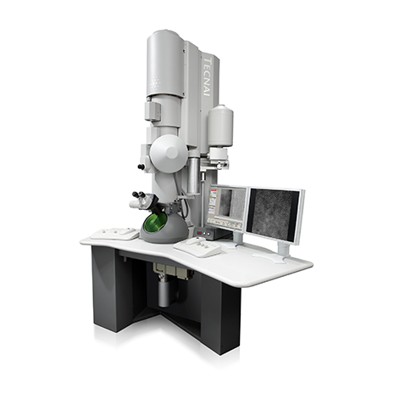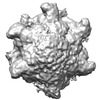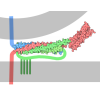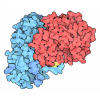+ Open data
Open data
- Basic information
Basic information
| Entry | Database: EMDB / ID: EMD-8557 | |||||||||
|---|---|---|---|---|---|---|---|---|---|---|
| Title | Vps4-Vta1 complex, VSL_F | |||||||||
 Map data Map data | Vps4-Vta1 complex, VSL_F | |||||||||
 Sample Sample |
| |||||||||
| Function / homology |  Function and homology information Function and homology informationESCRT IV complex / Sealing of the nuclear envelope (NE) by ESCRT-III / late endosome to lysosome transport via multivesicular body sorting pathway / intralumenal vesicle formation / protein retention in Golgi apparatus / Endosomal Sorting Complex Required For Transport (ESCRT) / late endosome to vacuole transport via multivesicular body sorting pathway / sterol metabolic process / nuclear membrane reassembly / multivesicular body sorting pathway ...ESCRT IV complex / Sealing of the nuclear envelope (NE) by ESCRT-III / late endosome to lysosome transport via multivesicular body sorting pathway / intralumenal vesicle formation / protein retention in Golgi apparatus / Endosomal Sorting Complex Required For Transport (ESCRT) / late endosome to vacuole transport via multivesicular body sorting pathway / sterol metabolic process / nuclear membrane reassembly / multivesicular body sorting pathway / vacuole organization / midbody abscission / membrane fission / plasma membrane repair / late endosome to vacuole transport / multivesicular body assembly / reticulophagy / endosomal transport / lipid transport / ATPase complex / nucleus organization / ATPase activator activity / autophagosome maturation / nuclear pore / multivesicular body / macroautophagy / autophagy / protein transport / midbody / protein-macromolecule adaptor activity / endosome / endoplasmic reticulum / protein homodimerization activity / ATP hydrolysis activity / ATP binding / identical protein binding / membrane / plasma membrane / cytoplasm Similarity search - Function | |||||||||
| Biological species |  | |||||||||
| Method | single particle reconstruction / cryo EM / Resolution: 5.3 Å | |||||||||
 Authors Authors | Monroe N / Shen P / Han H / Sundquist WI / Hill CP | |||||||||
 Citation Citation |  Journal: Elife / Year: 2017 Journal: Elife / Year: 2017Title: Structural basis of protein translocation by the Vps4-Vta1 AAA ATPase. Authors: Nicole Monroe / Han Han / Peter S Shen / Wesley I Sundquist / Christopher P Hill /  Abstract: Many important cellular membrane fission reactions are driven by ESCRT pathways, which culminate in disassembly of ESCRT-III polymers by the AAA ATPase Vps4. We report a 4.3 Å resolution cryo-EM ...Many important cellular membrane fission reactions are driven by ESCRT pathways, which culminate in disassembly of ESCRT-III polymers by the AAA ATPase Vps4. We report a 4.3 Å resolution cryo-EM structure of the active Vps4 hexamer with its cofactor Vta1, ADP·BeF, and an ESCRT-III substrate peptide. Four Vps4 subunits form a helix whose interfaces are consistent with ATP binding, is stabilized by Vta1, and binds the substrate peptide. The fifth subunit approximately continues this helix but appears to be dissociating. The final Vps4 subunit completes a notched-washer configuration as if transitioning between the ends of the helix. We propose that ATP binding propagates growth at one end of the helix while hydrolysis promotes disassembly at the other end, so that Vps4 'walks' along ESCRT-III until it encounters the ordered N-terminal domain to destabilize the ESCRT-III lattice. This model may be generally applicable to other protein-translocating AAA ATPases. | |||||||||
| History |
|
- Structure visualization
Structure visualization
| Movie |
 Movie viewer Movie viewer |
|---|---|
| Structure viewer | EM map:  SurfView SurfView Molmil Molmil Jmol/JSmol Jmol/JSmol |
| Supplemental images |
- Downloads & links
Downloads & links
-EMDB archive
| Map data |  emd_8557.map.gz emd_8557.map.gz | 7.4 MB |  EMDB map data format EMDB map data format | |
|---|---|---|---|---|
| Header (meta data) |  emd-8557-v30.xml emd-8557-v30.xml emd-8557.xml emd-8557.xml | 11.6 KB 11.6 KB | Display Display |  EMDB header EMDB header |
| Images |  emd_8557.png emd_8557.png | 296.3 KB | ||
| Archive directory |  http://ftp.pdbj.org/pub/emdb/structures/EMD-8557 http://ftp.pdbj.org/pub/emdb/structures/EMD-8557 ftp://ftp.pdbj.org/pub/emdb/structures/EMD-8557 ftp://ftp.pdbj.org/pub/emdb/structures/EMD-8557 | HTTPS FTP |
-Validation report
| Summary document |  emd_8557_validation.pdf.gz emd_8557_validation.pdf.gz | 78.2 KB | Display |  EMDB validaton report EMDB validaton report |
|---|---|---|---|---|
| Full document |  emd_8557_full_validation.pdf.gz emd_8557_full_validation.pdf.gz | 77.3 KB | Display | |
| Data in XML |  emd_8557_validation.xml.gz emd_8557_validation.xml.gz | 493 B | Display | |
| Arichive directory |  https://ftp.pdbj.org/pub/emdb/validation_reports/EMD-8557 https://ftp.pdbj.org/pub/emdb/validation_reports/EMD-8557 ftp://ftp.pdbj.org/pub/emdb/validation_reports/EMD-8557 ftp://ftp.pdbj.org/pub/emdb/validation_reports/EMD-8557 | HTTPS FTP |
-Related structure data
| Related structure data |  8549C  8550C  8551C  8552C  8553C  8554C  8555C  8556C  8570C  8571C  8572C  5uieC C: citing same article ( |
|---|---|
| Similar structure data |
- Links
Links
| EMDB pages |  EMDB (EBI/PDBe) / EMDB (EBI/PDBe) /  EMDataResource EMDataResource |
|---|---|
| Related items in Molecule of the Month |
- Map
Map
| File |  Download / File: emd_8557.map.gz / Format: CCP4 / Size: 10 MB / Type: IMAGE STORED AS FLOATING POINT NUMBER (4 BYTES) Download / File: emd_8557.map.gz / Format: CCP4 / Size: 10 MB / Type: IMAGE STORED AS FLOATING POINT NUMBER (4 BYTES) | ||||||||||||||||||||||||||||||||||||||||||||||||||||||||||||||||||||
|---|---|---|---|---|---|---|---|---|---|---|---|---|---|---|---|---|---|---|---|---|---|---|---|---|---|---|---|---|---|---|---|---|---|---|---|---|---|---|---|---|---|---|---|---|---|---|---|---|---|---|---|---|---|---|---|---|---|---|---|---|---|---|---|---|---|---|---|---|---|
| Annotation | Vps4-Vta1 complex, VSL_F | ||||||||||||||||||||||||||||||||||||||||||||||||||||||||||||||||||||
| Projections & slices | Image control
Images are generated by Spider. | ||||||||||||||||||||||||||||||||||||||||||||||||||||||||||||||||||||
| Voxel size | X=Y=Z: 1.409 Å | ||||||||||||||||||||||||||||||||||||||||||||||||||||||||||||||||||||
| Density |
| ||||||||||||||||||||||||||||||||||||||||||||||||||||||||||||||||||||
| Symmetry | Space group: 1 | ||||||||||||||||||||||||||||||||||||||||||||||||||||||||||||||||||||
| Details | EMDB XML:
CCP4 map header:
| ||||||||||||||||||||||||||||||||||||||||||||||||||||||||||||||||||||
-Supplemental data
- Sample components
Sample components
-Entire : Vps4-vta1 complex
| Entire | Name: Vps4-vta1 complex |
|---|---|
| Components |
|
-Supramolecule #1: Vps4-vta1 complex
| Supramolecule | Name: Vps4-vta1 complex / type: complex / ID: 1 / Parent: 0 / Macromolecule list: all |
|---|---|
| Source (natural) | Organism:  |
-Macromolecule #1: Vps4p
| Macromolecule | Name: Vps4p / type: protein_or_peptide / ID: 1 / Enantiomer: LEVO |
|---|---|
| Source (natural) | Organism:  |
| Recombinant expression | Organism:  |
| Sequence | String: GQEEGEDNGG EDNKKLRGAL SSAILSEKPN VKWEDVAGLE GAKEALKEAV ILPVKFPHLF KGNRKPTSGI LLYGPPGTGK SYLAKAVATE ANSTFFSVSS SDLVSKWMGE SEKLVKQLFA MARENKPSII FIDEVDALTG TRGEGESEAS RRIKTELLVQ MNGVGNDSQG ...String: GQEEGEDNGG EDNKKLRGAL SSAILSEKPN VKWEDVAGLE GAKEALKEAV ILPVKFPHLF KGNRKPTSGI LLYGPPGTGK SYLAKAVATE ANSTFFSVSS SDLVSKWMGE SEKLVKQLFA MARENKPSII FIDEVDALTG TRGEGESEAS RRIKTELLVQ MNGVGNDSQG VLVLGATNIP WQLDSAIRRR FERRIYIPLP DLAARTTMFE INVGDTPCVL TKEDYRTLGA MTEGYSGSDI AVVVKDALMQ PIRKIQSATH FKDVSTEDDE TRKLTPCSPG DDGAIEMSWT DIEADELKEP DLTIKDFLKA IKSTRPTVNE DDLLKQEQFT RDFGQEGN |
-Macromolecule #2: Vta1p
| Macromolecule | Name: Vta1p / type: protein_or_peptide / ID: 2 / Enantiomer: LEVO |
|---|---|
| Source (natural) | Organism:  |
| Recombinant expression | Organism:  |
| Sequence | String: GTKDELTKIM DRASKIEQIQ KLAKYAISAL NYEDLPTAKD ELTKALDLLN SI |
-Macromolecule #3: Vps2p
| Macromolecule | Name: Vps2p / type: protein_or_peptide / ID: 3 / Enantiomer: LEVO |
|---|---|
| Source (natural) | Organism:  |
| Sequence | String: DEIVNKVL |
-Experimental details
-Structure determination
| Method | cryo EM |
|---|---|
 Processing Processing | single particle reconstruction |
| Aggregation state | particle |
- Sample preparation
Sample preparation
| Buffer | pH: 7.4 |
|---|---|
| Grid | Material: COPPER |
| Vitrification | Cryogen name: ETHANE / Chamber humidity: 80 % / Chamber temperature: 277 K / Instrument: FEI VITROBOT MARK III |
- Electron microscopy
Electron microscopy
| Microscope | FEI TECNAI F20 |
|---|---|
| Image recording | Film or detector model: GATAN K2 SUMMIT (4k x 4k) / Detector mode: COUNTING / Average exposure time: 0.2 sec. / Average electron dose: 1.3 e/Å2 |
| Electron beam | Acceleration voltage: 200 kV / Electron source:  FIELD EMISSION GUN FIELD EMISSION GUN |
| Electron optics | Illumination mode: FLOOD BEAM / Imaging mode: BRIGHT FIELD |
| Experimental equipment |  Model: Tecnai F20 / Image courtesy: FEI Company |
- Image processing
Image processing
| Startup model | Type of model: INSILICO MODEL / Details: e2initialmodel.py |
|---|---|
| Final reconstruction | Resolution.type: BY AUTHOR / Resolution: 5.3 Å / Resolution method: FSC 0.143 CUT-OFF / Software - Name: RELION (ver. 1.4) / Number images used: 38421 |
| Initial angle assignment | Type: ANGULAR RECONSTITUTION |
| Final angle assignment | Type: ANGULAR RECONSTITUTION |
 Movie
Movie Controller
Controller











 Z (Sec.)
Z (Sec.) Y (Row.)
Y (Row.) X (Col.)
X (Col.)





















